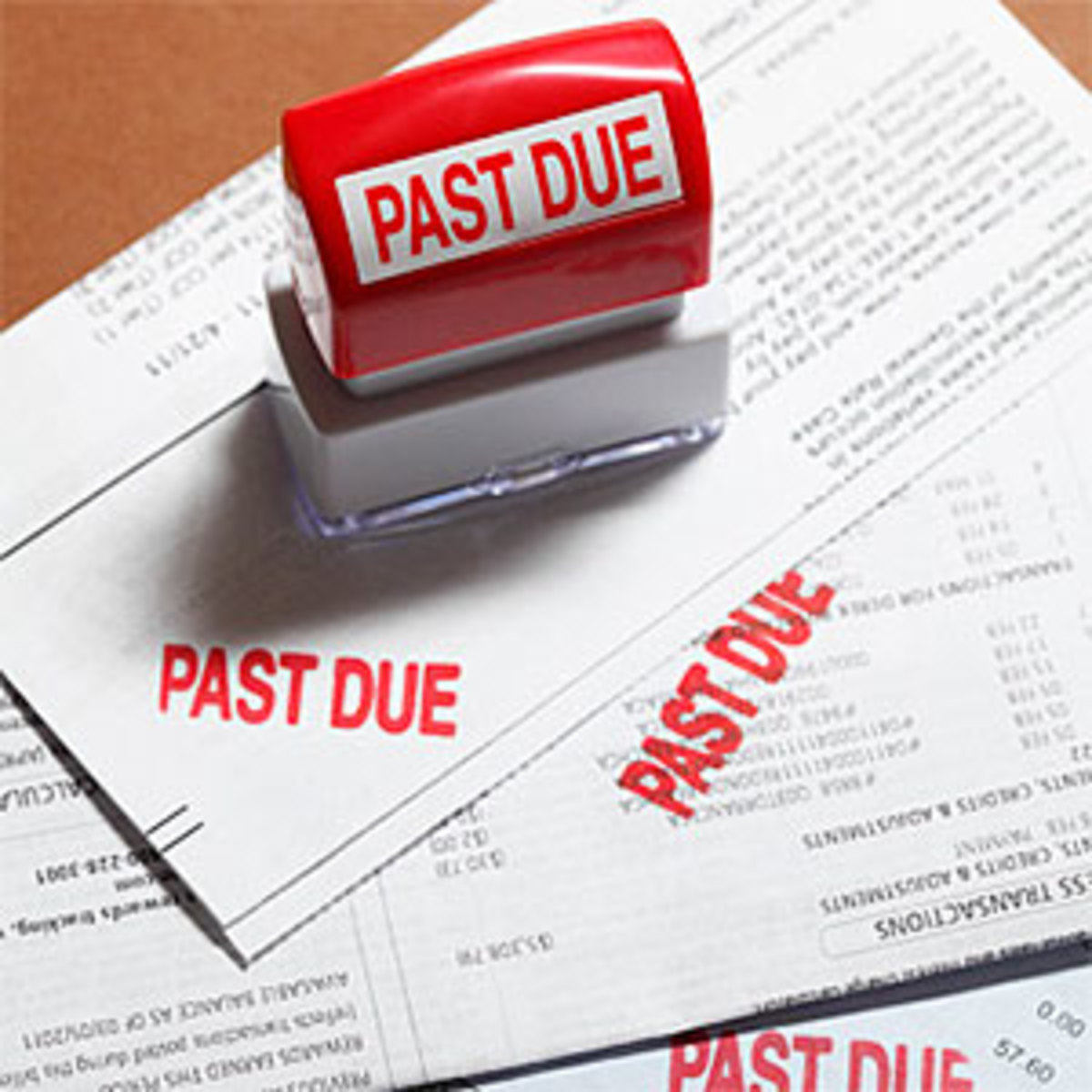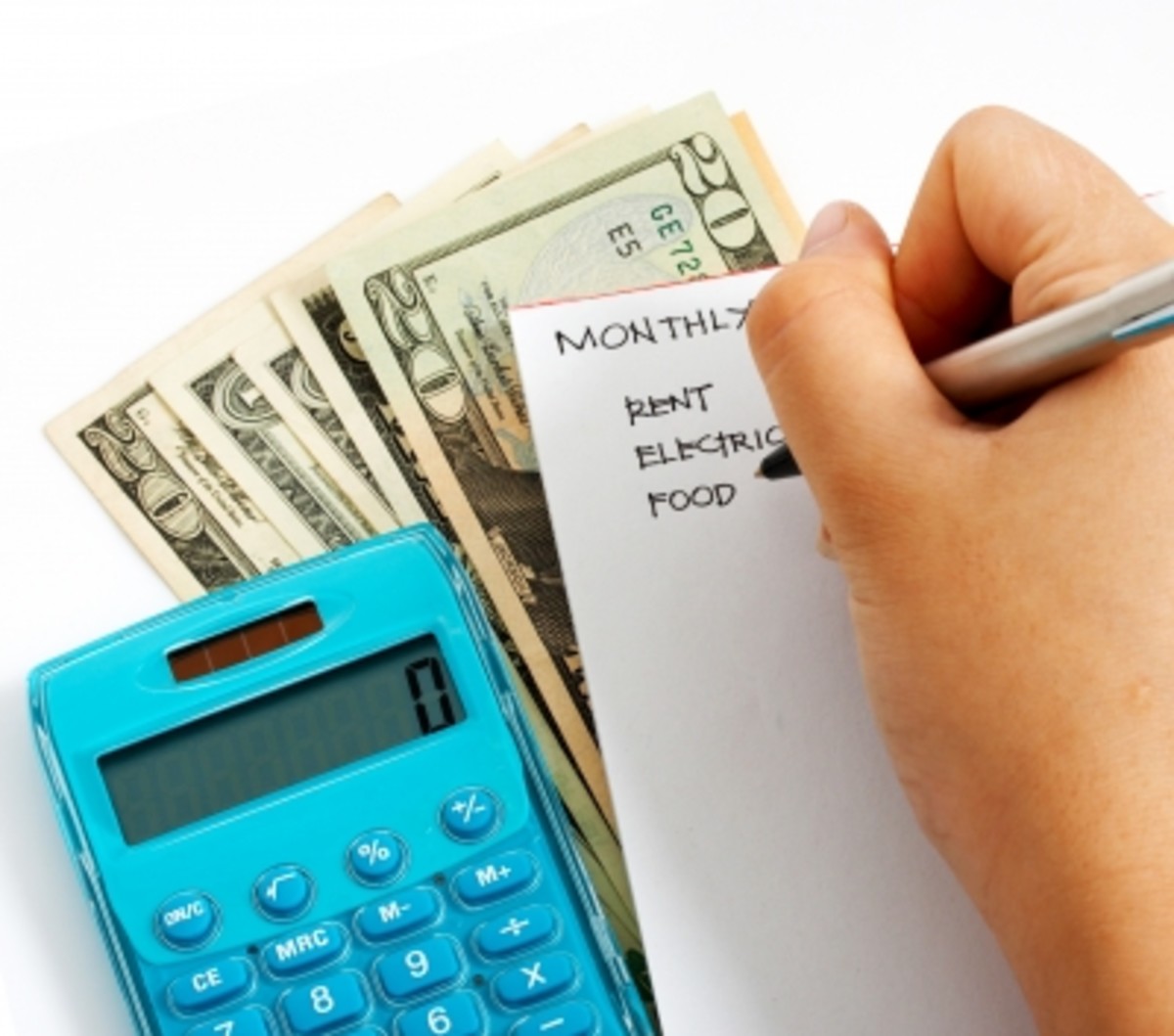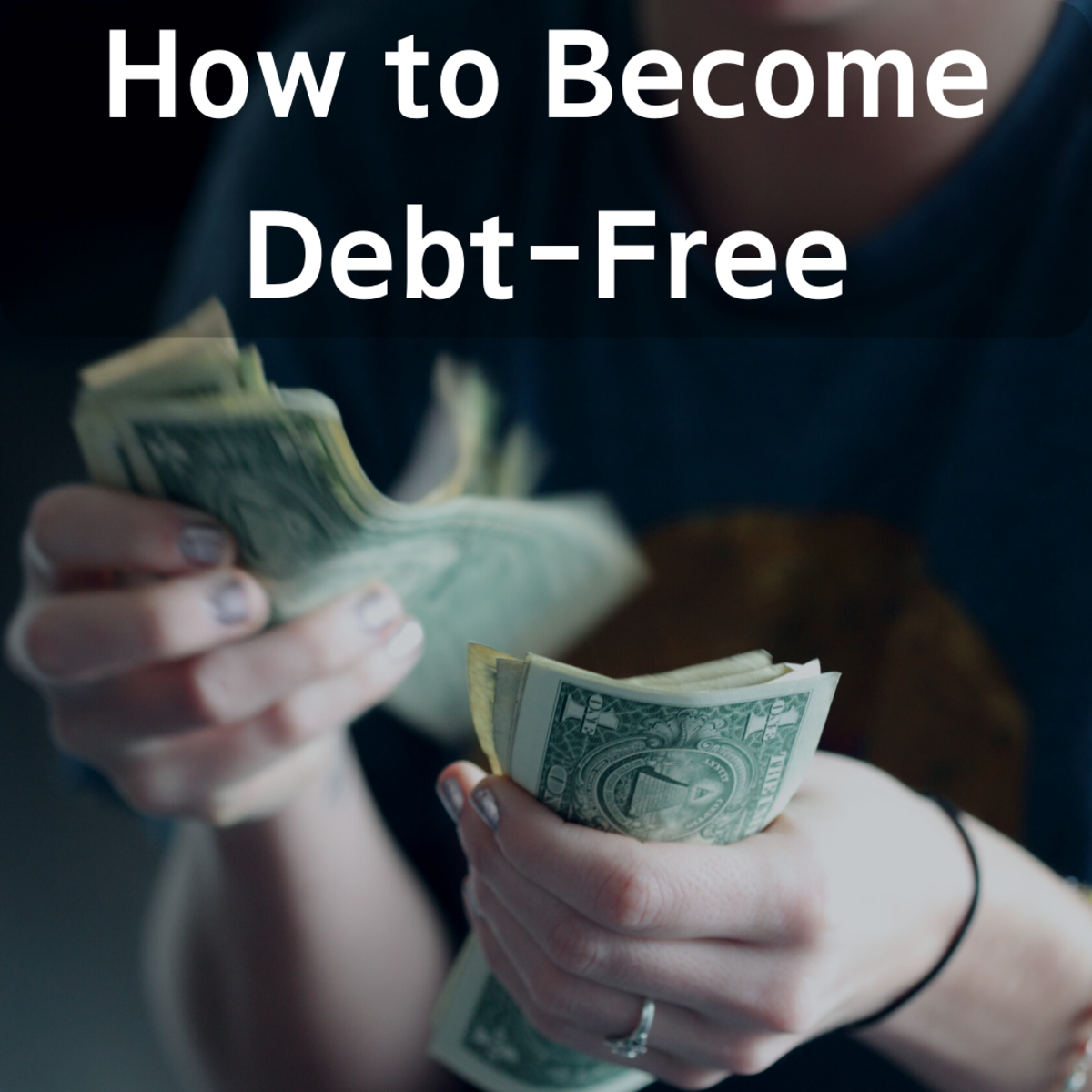Debt Advice - Do it yourself debt management
It's possible to get out of debt by yourself. Most of us carry some sort of debt, especially credit card debt, but since the advent of the recession, dealing with debt has become truly scary. Lenders are tightening up on borrowers and people are losing their jobs and struggling to meet their debt obligations. And to make things worse, people are being preyed upon by debt management firms who promise to make things better, but who usually make things worse by loading you up with fees and interest charges. The benefit of the DIY debt management option is that you save yourself a lot of money.
This page is designed to be a free debt advice resource that should help you sort out your debt problems. There is no easy route to becoming debt free - it takes hard work, discipline and planning. But it's worth it. The sense of freedom, the peace of mind once you are clear of debt is life changing.

Assessing the problem
Before you can dig yourself out of debt, you need to find out how bad the problem is.
Many people hide debt problems from themselves and their loved ones. Some refuse to see the problem building and simply carry on accruing more and more debt. Others get into serious problems and deal with it by refusing to open letters from creditors and refusing to answer the phone. However this is a lot like a child putting a hand over their eyes and thinking no-one can see them any longer. The problems don't go away, they get bigger.
Never ignore letters and phonecalls from creditors: they will simply go to court to obtain their money by seizing your possessions and/or your home and will argue to a judge that they made reasonable efforts to come to an arrangement with you but you refused to deal with them.
Gather together all your financial statements and all the letters from your creditors, make yourself a cup of coffee (or get yourself a drink if it helps) and sit down with a pad of paper and a pen.
You need to make a list of exactly how much you owe, to whom you owe it to, the interest rate being charged on the debt and the minimum payments being demanded.
Once you have got this information to hand, you then need to examine your income and expenses. The charity Consumer Credit Counselling Service have a checklist of things you should include when you calculate your expenditure, and I would advise people to use it: the main reason people get into debt is that they "forget" or are unaware of certain items of expenditure until it hits them on the head, at which point they get their credit card out to deal with it. In order to get out of debt, you need to be fully aware of exactly where your money is going.
At the end of this exercise you should now know exactly what money is coming in, exactly what your outgoings are and exactly how much debt you owe.
Increasing Income and Cutting Expenses
You will only have enough money to begin to pay your debts if your expenditure is less than your income.
First look at your income. Are you claiming all the tax credits and benefits you can? Check the site Entitledto.com to ensure you haven't missed anything out.
Find out if you can do overtime at work or if you can take on a second job. Even in this recession there are second-jobs going, such as doing pizza delivery in the evenings or stocking supermarket shelves in the middle of the night. The Wall Street Journal had an interesting article on earning online which may have some suggestions for income generation. Also go through the house and ear-mark things you could sell on Ebay - this might raise enough cash to pay down some of your debts. Consider taking on a lodger - you can earn up to £4250 per annum tax-free.
Next, look at expenditure. Cutting back expenditure is the hardest part of the exercise. We get accustomed to certain levels of spending, and if you have a spouse who is resistant to changing your way of life it's even harder. If you are married, approach cutting back expenditure together - it's no good one partner taking responsibility for the problem (with all the worry and stress) while the other partner sails on oblivious - that way lies marriage breakdown (which will compound both your personal distress and your financial distress).
Go through each item and ask yourself whether you need to spend on it. Here are some things to consider:
1. If you have mobile phones on contract, find out the earliest you can get out of the contract without penalty and switch to a pay-as-you-go phone.
2. If you smoke see the NHS Smoke Free website, which gives free advice and support for giving up the habit. Don't delay in tackling this - apart from impairing your life, with all the tax added to cigarettes, smoking is like rolling up money and setting fire to it.
3. Cancel the sattelite/cable/Sky TV package. You just can't afford it.
4. Cancel holidays away and cut back on entertainment. It's not necessary to go out to restaurants (or even to get takeaways). Mankind survived for centuries cooking what they ate from scratch.
5. Make an effort to cut back on grocery bills - move away from premium products to basics and learn to cook from scratch instead of eating expensive ready meals.
6. If you rent, consider moving into cheaper accomodation or moving back home with your parents. If you have a mortgage, try to get a remortgage (though this may be difficult if you have ruined your credit record)
The aim of this exercise is to increase income and reduce expenses so you have a surplus you can use to tackle the debts you have outstanding.
Snowballing debt
The technique of snowballing is a method of repaying debt where you focus on paying the debts off one by one. Snowballing is really your very own do it yourself debt management programme!
When you did the exercise of finding out exactly what you owed, you also noted down the interest rates charges and the minimum payments required. Snowballing involves paying the minimum to all the debts except the highest interest debt. For the highest interest debt, you pay as much more than the minimum as you can manage till that debt is paid off.
Once it is paid off, you use the money freed up to tackle the next highest interest debt till that is paid off. and so on till they are all gone. Why do it this way? Because being systematic about how you reduce debt is the only way to win against the relentless compound interest mechanism which tilts against those in debt. In order to win you need to ensure you are paying as little interest as possible, which means getting rid of high interest debt first.
The other thing to bear in mind is that you cannot borrow anymore while on this program! Otherwise you will never pay off debt.
What if you can't even afford to pay the minimum payments on debt
If even after cutting back on expenditure you can't afford the minimum payments on your debts, you are in serious trouble.
However, it's not the end of the world. There is still a way out. First of all contact the debt charity Consumer Credit Counselling service (CCCS) or the free industry-funded organisation National Debtline. Both give free debt advice and will not charge you any fees or interest. They should be able to negotiate with your creditors on your behalf to freeze interest payments and agree payments you can afford to make. You can also try to freeze the interest payments and agree a payment plan yourself by speaking to the lenders concerned (but be warned that this can sometimes be difficult - the recovery teams at the lenders are trained to be aggresive and to demand more than you can manage).
Once an informal arrangement is in place stick to it like glue and make all your payments on time.
Be aware that any agreement to freeze interest and accept a lower payment is temporary and at the discretion of the lender.
The lender can begin charging interest again at any time and demand increased payments at any time - and in the current climate where lenders are desperate to be repaid, it is unlikely you will be allowed to be on zero interest forever. If you own a property and have disclosed this to the unsecured lenders they will be more willing to pursue you and reinstate interest and/or try to bring a charging order on your property.
Treat the period where the interest is frozen as a breathing space to get your act together. Do everything you can to increase your income and cut spending and start to save a sum of money in a separate savings account that is not with any of the organisations you owe money to. That way, should the lenders demand interest payments again, you have the money on hand to settle the debt.
Once you have raised money, consider whether to settle credit card debt - this is where you make a lump sum payment to the lender as a full and final settlement that is less than the total amount outstanding. See this guide to debt settlement for how to do this.
What happens if you get made redundant?
If you get made redundant, under UK law you are entitled to a redundancy payment if you have been with your company for at least two years, of about 1 to 1.5 weeks pay for every year's service with the company. Often companies will give you a lot more.
When you get your payment, don't spend it, and don't use it to repay debt beyond your minimum payments. Redundancy money is there to tide you over till you find a new job. Stick it in a savings account (with instant access) for now (make sure you place it in a completely separate bank than the banks you owe money to) . Focus hard on cutting back on expenditure and ask your bank if you can switch your mortgage to an interest only one to reduce outgoings. The government will pay the interest on your mortgage after 13 weeks of unemployment for loans up to £175,000, as long as you are signed on as unemployed for those 13 weeks. If you rent, apply to your council for housing benefit. If you are signed on, you should be able to get a waiver on your council tax too for the period of unemployment.
Given you are unemployed, it will be difficult meeting other debt payments. Contact CCCS or National Debtline immediately - they will provide debt advice and you can ask them to negotiate your debts for you and deal with debt collectors on your behalf (though be warned that lenders may still be unsympathetic). Once you are back in employment, then resume paying them as normal.
Individual Voluntary Arrangements (IVAs) and Bankruptcy
Individual Voluntary Arrangements are a legal way of dealing with debts without going bankrupt. Your creditors meet, and 75% of the creditors by value of the debt you owe have to agree to enter an Individual Voluntary Arrangement where they all freeze your interest and you pay them an amount you can afford, which is split between the creditors in proportion to the amount you owe them.
IVAs are rigid - once you have entered one, you need to meet the payments as set on the date they are due - if you default, the creditors have the right to make you bankrupt. They are unsuitable for those whose income is variable. Do note too that fees will be charged by the IVA Practioner who arranges the IVA.
IVAs are usually entered into by those who can't get their creditors to freeze interest and agree a payment plan on an informal basis but who don't wish to go bankrupt (certain professions such as accountancy and law will disbar you if you are bankrupt).
Bankruptcy is handled by the courts - all you need to do is go to your local court and tell them you wish to be made bankrupt. An Official Receiver is appointed to your case, who will then go over all your affairs with a fine tooth comb. Note that Official Receivers are tough. They regard people who have knowingly run up debts on a high-life only to renege, as fraudsters. If your debts have been incurred however due to business failure or illness they will be kinder.
The first thing the Official receiver will do is to order that your assets to be sold to repay as much to your creditors as possible. This will include your house. In addition, they may attach your future earning and insist you pay a set amount to your creditors for a number of years. Only then will they write off your other debts. Bankruptcy is a very serious business and you should only enter it once you have exhausted all other options.
Beware of the scammers
Many scammers prey on desperate people with debts. Here are some of the scams you hear about:
1. Being able to "write-off" the debts entirely because the wording of certain pre April 1997 debt contracts was unlawful. The "consultant" concerned usually wants an up-front fee to take on your case. Very very few debt contracts have illegal wording and the judges usually throw the cases out - there have been several cases where the judge ruled in favour of the Bank of Scotland, Halifax, American Express, HFC Bank and Tesco Finance. Most credit agreements issued by the main banks, building societies and credit card companies are watertight. The scammers are relying on desperate debtors wishing to simply walk away from the money they borrowed, and to be so desperate that they pay these consultants money upfront to magic away the debt. Don't do it, it won't work.
2. "Consolidate your loan into a small easy payment". Hah! First of all consolidation loans are usually secured on your property, so you'll be turning unsecured debt into secured debt. Secondly, the "small easy payment" means extending the term of the loan, so you are paying interest for many more years, and in the final count will be worse off. Plus they usually add fees to the mix and charge interest rates much higher than that you are already paying. It's always best to bite the bullet and endure some tough years paying off your debt now than to try to make things "easy" and end up costing yourself thousands and thousands.
Reality check: There isn't any "easy" or cost-free way out of debt.








